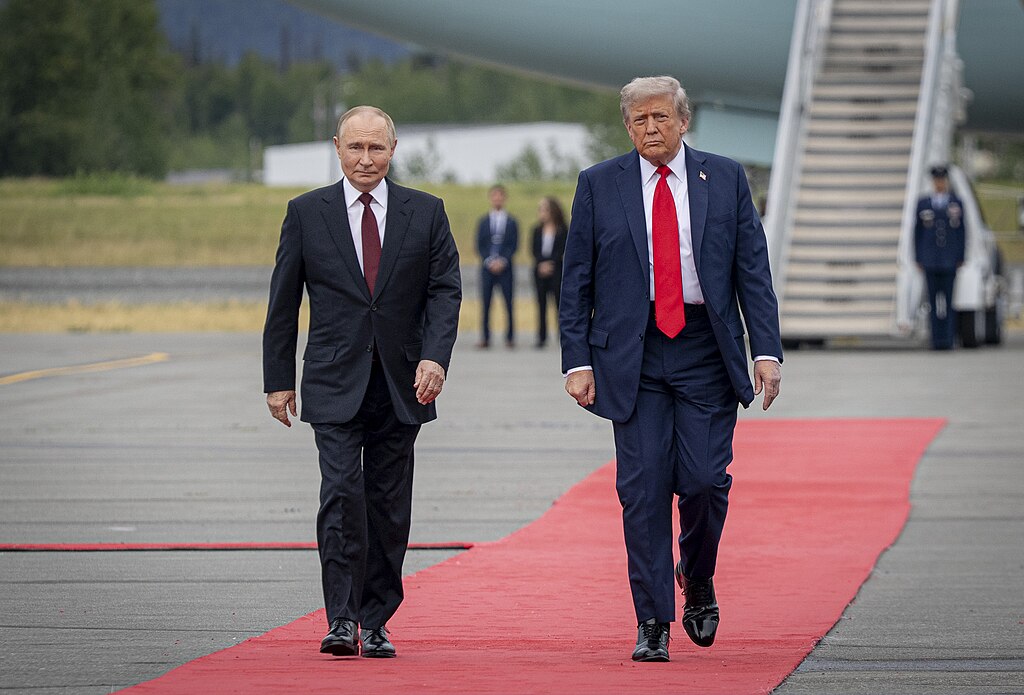US President Donald Trump announced on Truth Social on October 16 that he would meet Russian President Vladimir Putin in Budapest, Hungary, following a lengthy telephone call the Kremlin initiated. The meeting, expected within two weeks, comes as Trump's earlier threats to arm Ukraine with long-range Tomahawk missiles appear to have dissolved in direct conversation with Putin.
The Budapest summit seems to follow a now-familiar pattern: Trump publicly pressures Russia, then softens after direct contact with Putin. In August 2025, Trump hosted Putin in Alaska with warnings of "severe consequences," but the summit produced no breakthrough. Chatham House analysts assessed that "Alaska has emboldened Putin, who is likely to prolong, not end, the war," noting that Russia "received a reward for its invasion." Within hours of Thursday's call, Trump shifted from threatening to send "a couple thousand" Tomahawks to telling reporters "we need Tomahawks for the United States of America too...we can't deplete for our country."
Alaska summit established the pattern
The August 2025 Alaska meeting demonstrated Putin's strategy of using engagement to extract diplomatic gains without concessions. Trump had announced the summit after his August 8 sanction deadline passed, replacing punitive measures with a ceremonial red carpet welcome at Joint Base Elmendorf-Richardson. CNN analysis noted that "Trump's greatest favor to his Russian counterpart was time," allowing Putin to consolidate battlefield gains while negotiations stalled.
The Alaska summit's lack of substance was its aftermath. After "six bilateral Trump-Putin phone calls, five trips of Trump's envoy Witkoff to Moscow, the Alaska summit...failed to produce any tangible outcome to stop Russian aggression against Ukraine," stated a Chatham House analysis.
Yet Putin gained legitimacy: Russian Foreign Ministry spokesperson Maria Zakharova gloated that "for three years they have been talking about Russia's isolation, and today they saw the red carpet that greeted the Russian president in the United States."
Trump characterized the Alaska meeting as "10 out of 10" in an interview, then said "it is now up to [Ukrainian] President [Volodymyr] Zelenskyy to get it done and maybe the European nations, they have to get involved a little bit." This pattern—treating negotiations with Putin as successes while pressuring Ukraine—has repeated itself.
One call puts Tomahawk threat on hold
Just days before the Putin call, Trump told reporters aboard Air Force One: "I might say, 'Look, if this war is not going to get settled, I'm going to send them [Ukraine] Tomahawks.' The Tomahawk is an incredible weapon—very offensive. And honestly, Russia does not need that."
The Tomahawk missile system, with its 1,600-kilometer range, would enable Ukraine to strike Moscow and deep Russian military infrastructure. Ukrainian President Volodymyr Zelenskyy has argued these capabilities could force Moscow to negotiate seriously. Yet within one phone call, Trump's position reversed completely.
The Kremlin's reaction to the Tomahawk threat had been predictably alarmist. Putin's spokesman Dmitry Peskov expressed "extreme concern" and warned the war was entering a "dramatic moment." Former Russian President Dmitry Medvedev issued thinly-veiled nuclear threats, stating: "The delivery of these missiles could end badly for everyone. And most of all, for Trump himself."
Putin's foreign policy adviser Yuri Ushakov told reporters after Thursday's call that "it was Trump who proposed holding the summit in Budapest," and Putin "agreed immediately." The choice of venue is significant: Budapest was already a finalist for the Alaska meeting location. Hungarian Prime Minister Viktor Orbán maintains close ties with both Trump and Putin while questioning Western military aid for Kyiv.
Russian missiles fall as Trump hails progress
Trump wrote on Truth Social that "great progress was made" during the call and that high-level advisers led by Secretary of State Marco Rubio would meet Russian counterparts next week. The announcement came one day before Trump was scheduled to meet Zelenskyy at the White House.
The timing reveals Putin's diplomatic leverage. President Zelenskyy wrote on X that Russia launched more than 300 drones and 37 missiles targeting Ukrainian infrastructure in overnight attacks on Thursday—even as diplomatic conversations progressed. Euromaidan Press noted that "each time after such initiatives, Russia kills more Ukrainian civilians."
Atlantic Council analysis argued that "there is no reason whatsoever to believe that Russia's red lines are credible. Instead, the only logical conclusion is that Putin has been bluffing all along." Yet Trump has consistently treated these red lines as genuine constraints rather than negotiating tactics.
The pattern established in Alaska continues: Trump frames engagement with Putin as progress while Ukraine bears the cost of delayed Western support. Chatham House warned:
"Trump is turning to the softer target where he is more willing to exert leverage, and once again try to strongarm Zelenskyy into compromising the future of his country."
Related stories:

